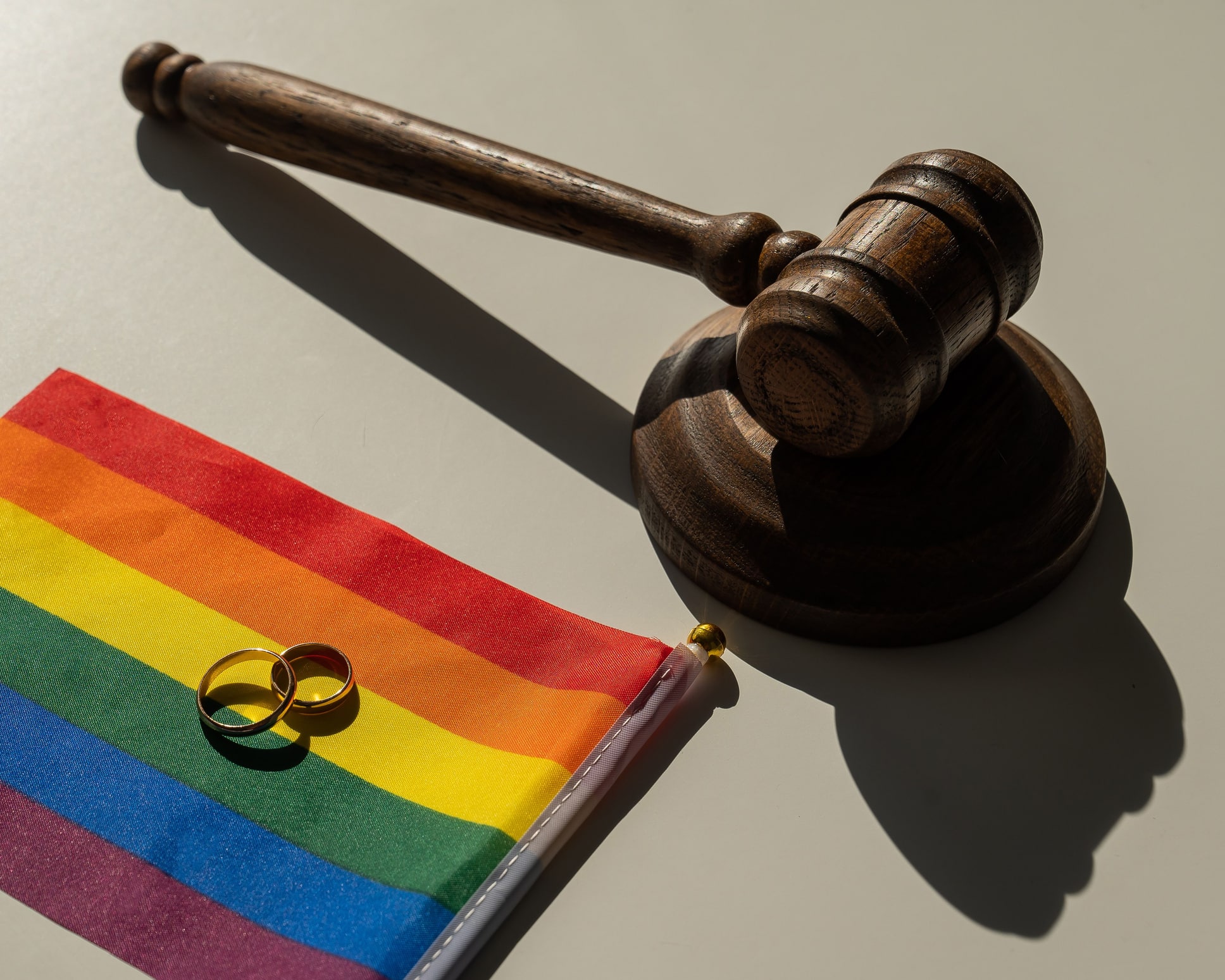On June 26, 2015, the U.S. Supreme Court’s historic decision in the Obergefell v. Hodges case swept away all of the legal prohibitions against same-sex marriage in the United States. Prior to that ruling, many same-sex spouses had difficulty obtaining a divorce in some states. For example, before Obergefell, married same-sex couples who moved to states that didn’t honor marriage equality were generally kept from divorcing in those states. This is something our divorce lawyers know well.

While a same-sex couple was legally empowered to divorce in the state where their marriage was performed, couples who moved often faced trouble getting a divorce. Most states also require a period of residency before any same-sex or opposite-sex divorce can be granted. The pre-Obergefell situation created some convoluted legal problems, particularly for same-sex couples who had traveled for “destination” weddings and then returned to states that didn’t recognize same-sex marriage.
However, as a result of the Obergefell v. Hodges ruling, both getting married and getting divorced are now much easier for same-sex couples across the United States, now that all fifty states are finally operating under the same legal rules. Still, some of the legal details regarding same-sex marriages may remain unclear, particularly in some states, and the courts will need to address those issues.
WHAT DID THE DEFENSE OF MARRIAGE ACT REQUIRE?
Under the old Defense of Marriage Act, which the Supreme Court tossed out when it decided Obergefell, no state was required to recognize same-sex marriages from other states. States that didn’t permit legal same-sex marriage were not legally obligated to recognize same-sex marriages from other states as legitimate marriages. Even when a same-sex couple met a residency requirement for divorce, they could be denied the divorce if they resided in a state that didn’t recognize same-sex marriage.
Also under the Defense of Marriage Act, an ex-spouse in a same-sex marriage who was ordered by a court in one state to pay spousal support could sidestep that obligation by moving to a state that didn’t recognize same-sex marriage – a state where the spousal support order was unenforceable. However, the Obergefell decision now requires all fifty states to recognize legal same-sex marriages that were performed in other states, and same-sex couples have a fundamental right to obtain a divorce without regard to their state of residence.
Despite the Supreme Court’s landmark decision, a same-sex couple may still face some legal difficulties if they choose to end their relationship. For instance, in some states, same-sex couples who did not have access to marriage opted for civil unions or domestic partnerships instead. While unions and partnerships are legally comparable to marriage, not all states recognize these types of arrangements, and as a result, couples in some states may not be able to dissolve civil unions or domestic partnerships. A couple in this circumstance will need the advice of a divorce lawyer in their own state.

Although Obergefell v. Hodges resolved the question of same-sex marriage at the federal level last year, when the legal situation regarding a same-sex marriage or partnership is complicated, those involved will need to refer to their own state’s laws and to consult a family attorney who is familiar with those laws. Same-sex couples in civil unions, for example, may need to establish residency in the state where the union took place.
Handed down on June 26, 2015, Obergefell requires all states to issue marriage licenses to same-sex couples and to recognize legal same-sex marriages from other jurisdictions. The Obergefell ruling legalized same-sex marriage throughout the U.S., its possessions, and its territories. The Court considered the meaning of fundamental rights under the Constitution, the harm caused by delaying the implementation of such rights, and the evolving understanding of discrimination and inequality under the law. Before Obergefell, only thirty-six states, the District of Columbia, and Guam recognized same-sex marriages.
ARE “PRENUPS” RIGHT FOR SAME-SEX PARTNERS?
One result of the Obergefell decision is that as more people get married, more people will get divorced. Divorce courts in every state will be more crowded, and complicated questions will emerge regarding adoption, alimony, and the division of marital property. Despite Obergefell, it may not be smart for a same-sex couple to rush quickly into a marriage. In this state, one wise move might be meeting first with an experienced California family law attorney to determine if a prenuptial agreement might be right for the two partners.

A prenuptial agreement offers legal and financial protection to both spouses regarding spousal support and the division of marital property if the marriage is dissolved. Partners without prenuptial agreements may have little or no legal protection in the future if they’re unexpectedly served with divorce papers, and in same-sex marriages, the courts for now still have few legal precedents to guide them.
When it’s properly drafted by an experienced California family law attorney, a prenuptial agreement can provide considerable guidance during a same-sex divorce. If you are planning to marry, consider having a family lawyer draft a prenuptial agreement on your behalf. Same-sex spouses who choose to divorce or who expect to divorce should also speak with an experienced California family law attorney.
WHAT ARE THE ALTERNATIVES TO DIVORCE?
Same-sex couples who want to end a marriage in California may have options other than divorce. Many couples in this state choose annulment or legal separation rather than divorce. If you want a court to say that your marriage isn’t legally valid – that it never “really” happened – you’re seeking an annulment. Annulments are rare and may only be granted by a judge in specific circumstances.

A legal separation in the state of California is neither an annulment nor a divorce; it’s an agreement by spouses to live apart, although simply living apart is not enough to establish a “legal” separation. Spouses must file for legal separation status, and issues like the division of assets and property must be agreed upon by the partners or decided by a judge. Some couples choose legal separation so that they will continue to qualify for various benefits.
Obergefell v. Hodges settled a variety of legal questions for thousands of same-sex couples in California and other states, but it left additional questions unanswered, and plenty of confusion probably still remains. Anyone who needs legal assistance with understanding the requirements for a same-sex divorce will need to consult in their own state with a divorce attorney who has substantial experience handling same-sex legal issues.




